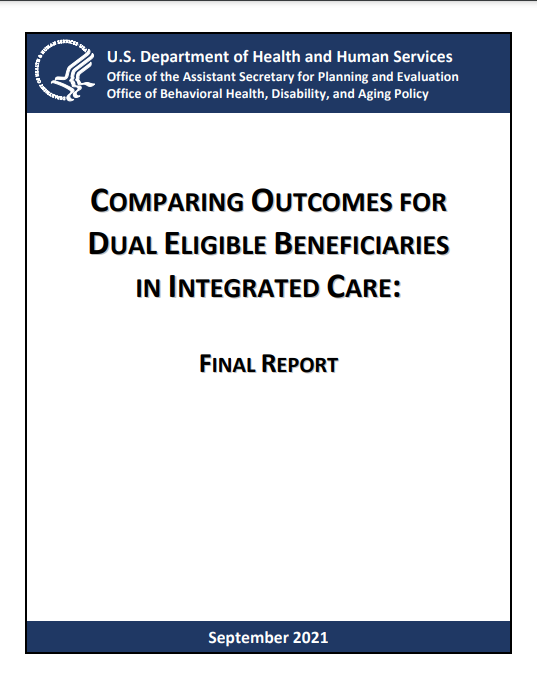Headline
Report analyzes evidence on integrated care models in comparison to non-integrated Medicare Advantage plans.
Context
Integrated care models aim to provide more coordinated care for people who are dually eligible for Medicaid and Medicare. Evaluating the impact of these models is challenging due to the differences across these models, varying levels of eligibility and service coverage across states, and significant delays in access to encounter data from managed care organizations that operate some of these integrated care models. This study uses 2015 Medicare encounter data to examine service utilization and outcomes among dually eligible individuals across three integrated care models: (1) Medicare Advantage (MA) Dual Eligible Special Needs Plans (D-SNPs); (2) Fully Integrated D-SNPs (FIDE-SNPs); and (3) the Program of All-Inclusive Care for the Elderly (PACE), and compares these findings with non-integrated MA plans.
Findings
The authors reported that there were considerable differences in beneficiary demographics and disease burden across the integrated care models; and when these factors were controlled, the models demonstrated some promising outcomes, including overall reduced utilization of institutional care and increased utilization of home- and community-based services (HCBS). Notably, there were increases in emergency department utilization in some models (FIDE-SNPs and D-SNPs) and inpatient hospitalization (FIDE-SNPs) compared to non-integrated MA plans.
Takeaways
State policymakers interested in integrated care models for dually eligible individuals can use this report to understand the effectiveness of different integrated care programs in achieving different goals, such as reduced institutional care, reduced emergency department visits, or increased use of HCBS.

